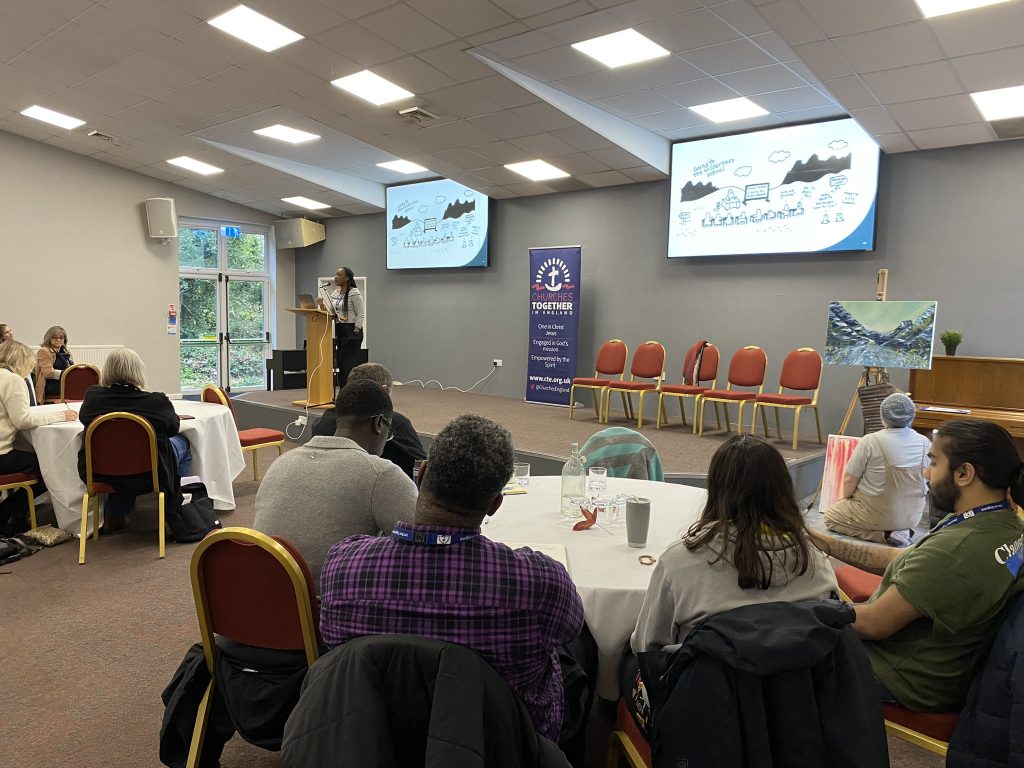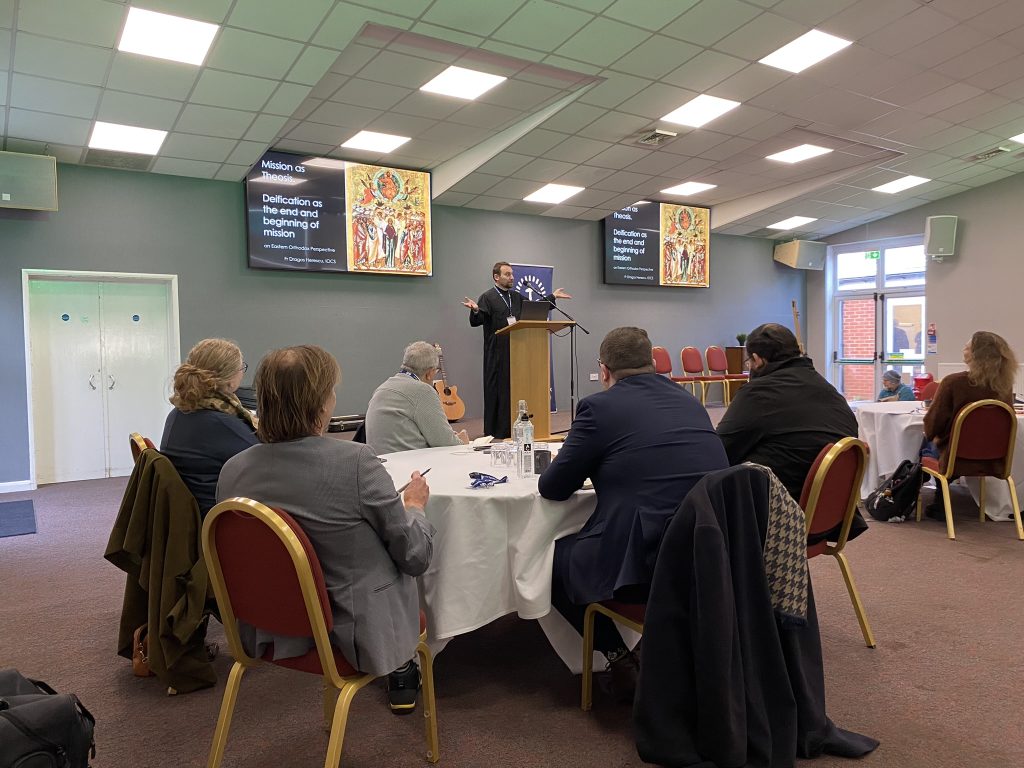A posture of humility was one of the key themes explored by around 60 representatives from a wide range of churches and Christian agencies who gathered at High Leigh conference centre for CTE’s 4th Learning to be Missionary Disciples Conference in November.
An image which stuck in my mind from the stirring opening keynote given by Dr Lisa Adjei (incoming Head of Racial Justice, Diocese of London) was of a prayer conference she’d attended in the summer where thousands of young people, many of them from the African Diaspora, gathered in Germany. As part of the event, German church leaders knelt and repented before these young people for past wrongs. It was a stark example of the positional move we need to make from power to humility as we bear witness to the God of love in the world.
Lisa spoke about the ways in which our structures and institutions of faith have become intertwined with power since the time of the Roman Emperor Constantine, whereas God’s upside-down kingdom is often operating outside these institutions. So we might need to look elsewhere to see how God is moving, with implications for the nature of our mission and evangelism.
Questions we posed to ourselves included, how can we take a posture of humility which looks for what God is already doing in a place or a community that we can participate in? How can we be people who listen to others’ stories, to their pain, their values and their humanity? And how can we be authentic – real with ourselves and one another?
These questions reverberated throughout the 24 hours we shared together, hearing from one another about evangelism as storytelling, among 20s-30s and among those who self-define as “spiritual but not religious”. I was fascinated by insights into the importance of telling our true stories, of celebrating skills of listening well; sharing our faith from a trauma-informed perspective; and drawing on the shared values of justice, compassion and sincerity among many who call themselves spiritual not religious. I shared from my own experience of how we can act with integrity and wholeness in relation to money and the economy.


Fr Dragos Herescu (Principal of The Institute for Orthodox Christian Studies) elaborated on these themes with his keynote on mission as theosis – the process of “becoming like God” which speaks of journey and flexibility as integral to our missional posture. If every person bears the image of God, we can find where God is already at work in the world, and value and love aspects of the society in which we live. But at the same time in the post-Christendom context of secularism, we need to work together across our churches, to remain faithful to the truth of who God is and who we – each and every human – are in His image.
Worship and times of prayer further enriched our time together, learning from diverse experiences, and being inspired to go out and join in with what God is doing across His church and across His world.
Sarah Edwards is the Executive Director of the JustMoney Movement, which is a Charity and Network in Association with Churches Together in England.